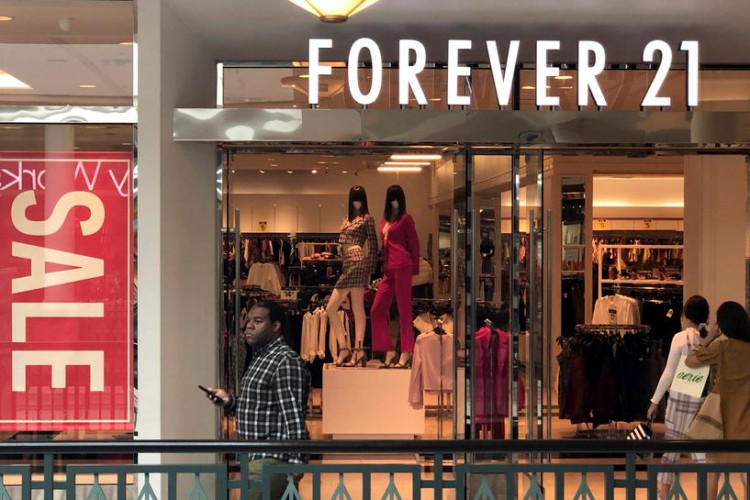Forever 21 will close all of its U.S. stores after filing for bankruptcy protection for the second time, as the fast-fashion retailer struggles to stay afloat amid fierce competition from online giants Shein and Temu, rising operational costs, and shifting consumer habits.
The company's U.S. operator, OpCO, LLC, announced the decision Monday, confirming it would wind down operations and initiate liquidation sales across more than 350 locations nationwide. Chief Financial Officer Brad Sell stated, "While we have evaluated all options to best position the Company for the future, we have been unable to find a sustainable path forward...we will work diligently to minimize the impact on our employees, customers, vendors and other stakeholders."
Closures are scheduled to begin May 27 and conclude by June 10, court documents show. Forever 21 stores operated by licensees outside the U.S. will continue normal operations. Authentic Brands Group (ABG), which owns Forever 21's intellectual property, may license the brand to other operators in the future.
The bankruptcy filing marks the second collapse for Forever 21, which previously filed for Chapter 11 protection in September 2019. Since emerging from its first restructuring, the company faced challenges including the COVID-19 pandemic, inflation, and increased competition from low-cost online retailers.
Stephen Coulombe, co-chief restructuring officer, identified Shein and Temu's ability to exploit the "de minimis exemption" as a key factor in Forever 21's struggles. The exemption allows imports under $800 to enter the U.S. duty-free, enabling overseas retailers to offer lower prices. "Certain non-US online retailers that compete with the Debtors, such as Temu and Shein, have taken advantage of this exemption and, therefore, have been able to pass significant savings onto consumers," Coulombe stated in court filings.
Attempts to secure new investors failed despite outreach to over 200 potential buyers, with 30 entering confidentiality agreements. No viable offers materialized, forcing the company to proceed with liquidation.
Forever 21's financial difficulties are reflected in mounting losses:
- Over $400 million in losses over the past three fiscal years
- $150 million in losses in 2024 alone
- Projected additional $180 million EBITDA loss through 2025
In 2021, the company posted $2 billion in revenue and $165 million in EBITDA. But by last year, ABG CEO Jamie Salter admitted acquiring Forever 21 was "probably the biggest mistake I've made."
The retailer owes $1.58 billion across various loans and over $100 million to clothing manufacturers, primarily based in China and South Korea.
Efforts to cut costs, including rent reduction negotiations with landlords, saved approximately $50 million but failed to offset the company's financial decline.
Founded in 1984 by South Korean couple Do Won Chang and Jin Sook Chang, Forever 21 became a staple of teen fashion in the 1990s and early 2000s, boasting more than 43,000 employees and $4 billion in annual sales at its peak.




